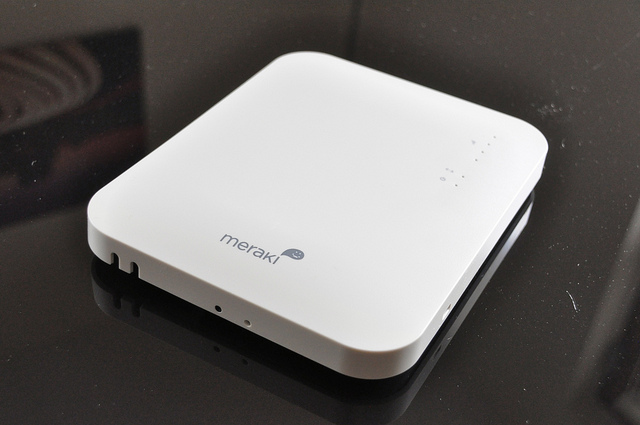Network data systems are becoming more complex by the day. With a tremendous profusion of new devices and operating systems, it’s harder and harder to develop a configuration that can handle it all. The challenge is made even more complex by the rigorous demands of the manufacturing world.

Manufacturing leaders are challenged to constantly measure and reduce errors in their processes, and network data systems are becoming more central to that never-ending process. In many cases, static network data systems can no longer be trusted to move fast enough to meet all of manufacturing’s emerging needs.
Advantages of Cloud Network Administration
Cloud systems – particularly the Meraki suite by Cisco – can completely transform the daunting task of manufacturing network administration. Meraki significantly simplifies the process by moving capabilities out of individual hardware “boxes” and to the cloud. This streamlines network administration, configuration and evolution.
Meraki has many advantages that manufacturing leaders in particular will enjoy:
Remote Troubleshooting
As a network of manufacturing sites grows larger, it becomes harder for technology experts to oversee all of them. With Meraki, experts can tap in remotely and take care of troubleshooting your network data systems at any time. This reduces the expense and inefficiency traditionally associated with traveling across your growing web of manufacturing sites.
Lower Upfront Costs
Meraki reduces upfront costs by ensuring that software updates – a vital part of keeping your systems running under changing conditions – are included in the initial costs. You won’t have to concern yourself with separate licensing fees. Software improvements roll out quickly and seamlessly to your entire network, improving your productivity.
Reliable Hardware
Meraki software is designed for maximum functionality, unlike a “piecemeal” system that might be designed using different products, models and vendor specifications. There are fewer points of fault on a Meraki network and critical systems offer robust redundancy. Even in the event of a disaster, you can have your network back in working order fast.
Easy Set-up
Set-up for a Meraki device takes only minutes. A Meraki network uses its own internal logic to ensure that you can add or remove devices from the network easily and with virtually no manual configuration. No matter how complex your network needs are, odds are good that you can have a complete solution working within a single day using Meraki.
Power Over Ethernet
With Meraki, you have the option of using a traditional AC power adapter or a "power over Ethernet" injector to supply your devices. Ethernet is the backbone technology of most networks and literally millions of miles of it are in service all over the world. Power over Ethernet simplifies set-up and reduces your upfront investment even further.
Fast Problem-Solving
Meraki includes a robust variety of problem-solving tools that can quickly diagnose problems and suggest solutions. Your network administrators have the power to remotely test devices for performance and ensure all devices are working together as expected. Because so much of the Meraki infrastructure exists in the cloud, the Meraki network simply works.
"Future-Proof" Your Manufacturing Business
Transitioning from traditional network data systems to a Meraki-based cloud network may seem like a challenge, but looks can be deceiving. At a single site, such a transition may take only a few hours. If there are many manufacturing sites that need to be networked, a complete change can be accomplished in a single weekend – all with minimal business disruption.
As time goes on, the versatility required for a successful manufacturing network will only increase. Leaders who want to stay ahead of the curve should seriously consider implementing Meraki, an innovative IT solution that truly helps to “future-proof” businesses in the manufacturing sector.
Read more about our outlook on cloud technology and business in the helpful e-book below, "Cloud, Smog or Fog."
Image credit: DaveOnFlickr





